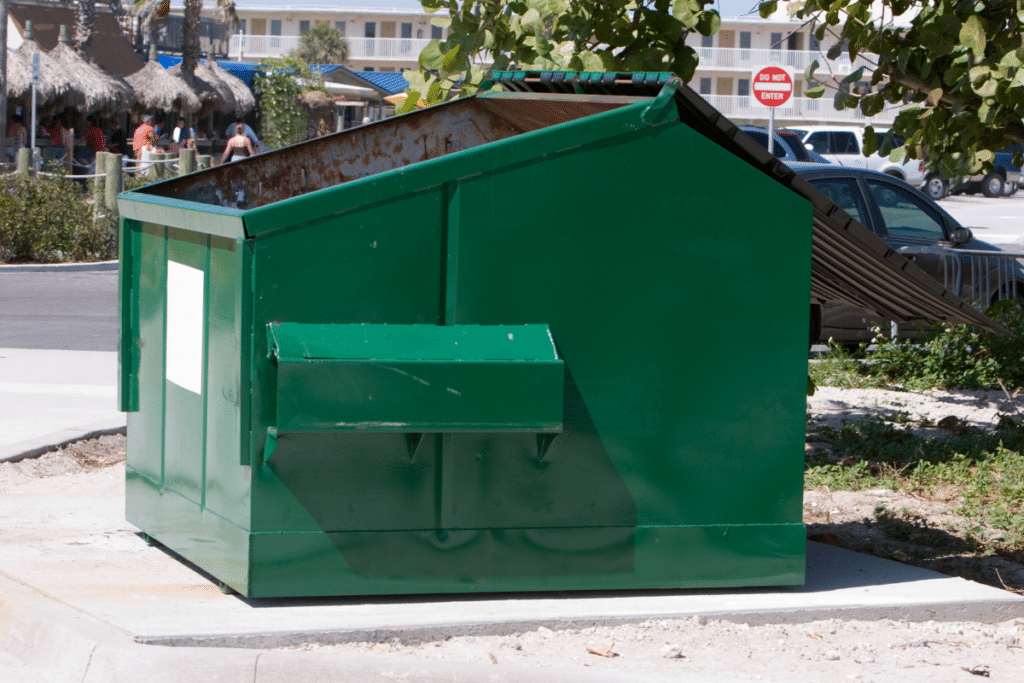Are you looking for ways to save money? Are you tired of feeling like you’re just treading water financially? These hacks will help you slash your expenses and get ahead financially, from making your laundry detergent to living in a car.
Frugality is all about living below your means and making the most of your resources. While there are many different ways to have a frugal mindset and hundreds of realistic frugal living tips, some people take things to extremes to save as much money as possible. This article will explore 25 extreme frugality hacks that can help you save a ton of money.
This post may contain affiliate links. Please see the disclosure statement for more information.
What Is A Frugal Mindset?
The frugal mindset is all about being smart and making sensible choices with money. It’s not just for the sake of saving. It’s about being smart with your money. Whether your financial goal is big or small, frugality can help get you there.
Being in the right headspace to understand why you want to embrace extreme frugality is essential. Without it, you may be burnt out and spending kike you won the lottery.
How Do You Practice Extreme Frugality?
Extreme frugality is a way of life that most people don’t want to pursue. But for those who are willing, this can be a gratifying and profitable practice.
Extreme frugal living is the next level of frugality. It’s intense and out of the box. Sacrifices are made to save money, and practices are implemented for a simpler life.
Frugality isn’t just about saving money; it’s also often associated with living simply without unnecessary belongings or clutter in our homes, so we have fewer distractions while focusing on family time.
1. Save on food and grow your own.
If you want to save a lot of money on food, one extreme measure you can take is to stop buying food altogether. Instead, grow your fruits, vegetables, and herbs. Growing your own will save you a lot of money, but it will also be healthier.

2. Save on clothes by living in a nudist colony.
Clothes are a considerable expense. If you want to save money on clothes, you can live in a nudist colony. You will never have to repurchase clothes. While a nudist colony might be the choice of extremely frugal people, some other values need to come into play.
3. Save on rent by living in a van or car.
Rent is one of the most significant expenses, and practicing extreme frugality by finding alternative homes is a great option. If you want to save money on rent, one extreme measure you can take is to live in a van or car. You can park anyplace that allows overnight parking for free. You can get a membership to a national gym where you can shower and work out.
Depending on the part of the world you’re living, there is something called BLM land(Bureau Of Land Management) where you can camp for free. Check out the internet for rules and locations in your area.
4. Save on electricity by living off the grid.
Electricity is another significant expense for most people. If you want to save money on your electric bill, one extreme measure you can take is to live off the grid. This viable alternative lifestyle is becoming more popular and more straightforward than ever. Living these extremely frugal ways, you will not have to pay for electricity.
You may need to invest some money upfront for solar panels, propane, or generators, but it will save lots of money in the long run.
5. Save on water bills by collecting rainwater.
Use the things around you. Water bills can be a significant expense, especially in areas with high water rates. If you want to save money on your water bill, one extreme measure you can take is to collect rainwater. This way, you will not have to pay for water at all. Rainwater might be my favorite extreme frugality tip.
6. Save on gas by riding a bike everywhere.
Gas is another considerable expense for most people. If you want to save money on gas, you can take one extreme measure to ride a bike everywhere. This way, you will not have to pay for gas at all.

7. Save on car insurance by getting rid of your car.
Car insurance is a necessary expense for most people. However, if you want to save money on car insurance, you can take one extreme measure to get rid of your car. This way, you will not have to pay for car insurance.
8. Save on needs by bartering.
Stop spending money and seek out like-minded others that are willing to barter. Does someone have some property you can live on in exchange for helping with a harvest or property maintenance? Even things like mending in exchange for a haircut or baking bread for caner fruits.
9. Save on medical bills by living a healthy lifestyle.
Medical bills can be a considerable expense, especially if you have a chronic illness. If you want to save money on your medical bills, one extreme measure you can take is to live a healthy lifestyle. This way, you will not have to pay for medical care.
10. Save on child care and school costs by homeschooling your children.
Child care costs are a significant expense for most families. If you want to save money on your childcare costs, one extreme measure you can take is to homeschool your children. This way, you will not have to pay for childcare.
11. Save on food and household items by dumpster diving.
Dumpster diving is a great way to find food and household items that are still usable. This way, you will not have to pay for food or household items.

12. Save on travel costs by living a nomadic lifestyle.
Travel costs can be a considerable expense for most people. If you want to save money on travel, you can take one extreme measure to live a nomadic lifestyle. This way, you will not have to pay for travel at all.
Consider house-sitting for others. Get paid to travel and sit with their pets and home while they’re gone and save on your housing.
13. Save on entertainment costs by living a simple lifestyle.
Entertainment costs can be a considerable expense for most people. If you want to save money on entertainment, you can take one extreme measure to live a simple lifestyle. This way, you will not have to pay for entertainment at all.
Seek out only free alternatives, books and movies from the library, and free music in the park or at a bar (or coffee shop) with no cover charge.
14. Save on pet costs by not having any pets.
Pets can be a considerable expense for most people. If you want to save money on pets, one extreme measure you can take is not to have any pets. You will not have to pay for food, shelter, or medical care for a pet.
If you’re feeling the need to snuggle or spend time with a furry friend, ask someone f you can hang out with them. Most pet owners welcome the idea of their dog hanging out at the park for a few hours with a friend or family member.

15. Save on everything by making your own.
Skip the crackers, cookies, and even bread at the grocery store by making all those things from scratch. The cost is pennies on the dollar when you skip the cookie aisle at the grocery store and bake your own.
The same goes for laundry detergent, mittens, and furniture. Make your own out of things you already have in your home, scavenged, or purchased cheaply.

16. Save on clothes by only wearing thrift store finds or hand-me-downs.
You don’t need the latest fashion trends to feel good in your clothes. Find a style that you love and stick with it, whether shopping at thrift stores, garage sales, clearance racks, or getting clothes from friends and family.
17. Save on utilities by using less energy.
There are several ways to save on your energy bill each month. Easy ways to do this are to unplug appliances when you’re not using them, turn off the lights when you leave a room, and wear warmer clothes in the winter to avoid turning up the heat as much.
Extreme ideas would be to use candles instead of lights, woodstove fires instead of furnaces, and only rechargeable gadgets or appliances.

18. Save on new things by making items last forever.
Things like socks and razors can last longer than most people give them. Sharpen razors for shaving, repair holes in socks, glue items that break, and repair electrical lamps with a short. Reupholster chairs that need it.
Use every last bit of everything you can.
19. Save on phone costs by using a prepaid or cheap phone plan.
Prepaid phone plans are a great way to save money on your cell phone bill. With these plans, you pay for a certain amount of minutes, texts, and data each month, and you can’t go over that amount. That can help you avoid overage fees and save money.
Other very inexpensive plans offer joint accounts. Each person pays their bill, but the more people on the plan, the cheaper it is.

20. Save on internet costs by using a free or low-cost internet service.
There are several ways to get low-cost or free internet access. One way is to see if your library offers internet access for patrons. Another is to see if there are low-cost internet service providers in your area. If you have an inexpensive cell phone plan with unlimited data, ditch the internet altogether and use cell phone data.
21. Save on TV costs by watching free or low-cost programming.
There are several ways to watch TV without paying for cable or satellite service. One way is to watch shows and movies available to stream for a small monthly charge like Hulu or Apple. Another is to watch programming available on free TV channels like PBS. Many networks have websites to watch programming.
Consider an antenna or devices like a Roku or Firestick that offer free channels.
Also, consider skipping tv and reading more.

22. Save on gift-giving by making your gifts.
Whether you learn to sew or know how to bake, making gifts for others is usually a less expensive way to go.
An option to regift items that you don’t need is also a thrifty idea. The Tightwad Gazette has some fabulous DIY gift-giving ideas. Also, consider shopping for new or gently used items at thrift shops or garage sales.
23. Save on child care costs by not having any children.
Child care can be a significant expense for most families. If you want to save money on child care, one extreme measure you can take is not to have any children. Of course, this is not an option for everyone, but it can be a way to save money.
24. Save on laundry and personal care soaps by watering them down.
Add half water to laundry soap. Shampoo, conditioner, and liquid hand soap will make those products last longer and save 50% of your costs.
Consider skipping shampoo and conditioner altogether and just rinsing with water.

25. Save on haircuts by cutting your own or not getting one.
There are a LOT of videos on Youtube showing you how to cut your hair for both males and females. or, if you like long hair and don’t mind wearing it up on hot days, simply don’t cut it anymore
And then absolutely stop coloring, highlighting, and perming your hair. Let it be natural.

Final Thoughts On Extreme Frugality Hacks To Save A Ton Of Money
We hope you find at least one or two extreme frugal hacks to help you start saving money and living a more comfortable life below your means.
Don’t forget to create a budget no matter how much money you have and how many of these extreme frugal hacks you want to implement. These are just a few extreme measures you can take to save money. While some of these measures may seem drastic, they can help you save a lot of money in the long run.

 75 Cheap (And Easy) Family Summer Meals on a Budget
75 Cheap (And Easy) Family Summer Meals on a Budget